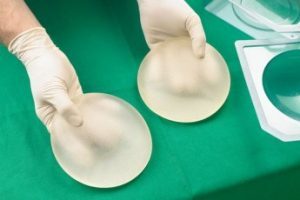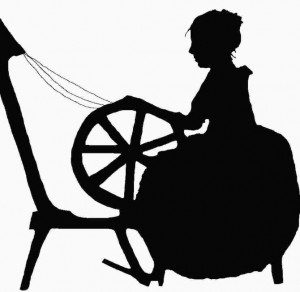When this disfiguration developed, I felt so conscious of it that I didn't wear hijab because my hair helped to cover it to some degree. Surgery options are limited and results are uncertain/unpredictable.
This deformity has proved an obstacle in relationships, communicating with others, going to the mosque, being in public, going to college/work, contemplating marriage etc. and I fear I may have this for the rest of my life.
I've been praying for a way out but feel stuck in life as this prevents me from doing the things mentioned above.
I previously had some counselling for the issue and came to the conclusion of 'being open and unafraid of this issue' so it wouldn't prevent me from doing things.
But when I do things to keep me busy, it helps. However, the issue remains because I feel like I can't do certain things in life as I would need to be more open about it as the opposite is keeping myself isolated and 'in hiding'. Also keeping busy provides a distraction for the issue.
I'm hoping that surgery/ further treatment might provide me with relief. But this isn't guaranteed to get rid of the issue and there is a chance I will be stuck with this for life.
Friends and family have proved unhelpful and being open about the issue subject me to questioning and ridicule at times. I am scared of the future and my future prospects in life.
Please offer help and advice as I feel stuck in this dilemma.
Answer
In this counseling answer:
I would encourage you insha’Allah to list each aspect of life which this deformity prevents you from enjoying.
Next, I would like you to cross off each reason which is not related to a physical impediment/disability or your concept of self-esteem.
Sister, your confidence can be developed by doing a self-inventory and taking the power away from your deformity.
Put your concentration and thoughts on self-affirmations of all your good qualities and abilities.
You are giving the deformity way too much power and control over your life.
The power lies of course with Allah, then within you not the deformity.
The more self-confidence you develop, the more comfortable you will become answering any questions that may come your way.
As-Salamu ‘Alaykum dear sister,
Thank you for trusting us with your most important concerns.
As I understand, you have a facial deformity which is causing you much distress.
While I am not sure if this was something you were born with or something that happened to you 5 years ago, the fact is that you are uncomfortable with it.
It affects your life and your perceptions of self in many ways.
My dear sister, you stated that this deformity is an obstacle to communication, going to the mosque, being in public, going to college/work as well as an obstacle in relationships.
While I do not know what is the deformity, I can see it has a lot of power over you.
Reasons of prevention
Sister, I would encourage you insha’Allah to list each aspect of life which it prevents you from enjoying.
Underneath this list and make notes of how it prevents you from engaging in that activity.
For instance, you stated that it prevents you from going to the mosque.
Please, list how. Does it make it difficult to pray? Is it physically painful? Do other side effects emerge such as headaches, and so forth.
Under work/school, does it impede communication, learning or expression? If so how?
Please insha’Allah, think of as many ways in which this deformity stops you from each category of activity and write it down.
Cutting it short
Next, I would like you to cross off each reason which is not related to a physical impediment/disability or your concept of self-esteem.
Next, cross off each reason which is related to how you feel such as self-conscious or unattractive. Please, do count the reasons that are left.
These are valid reasons sister to be truly concerned such as loss of speech, inability to move your head, inability to hear and so on.
For these reasons, please continue to follow up with your doctor for other surgeries in order to produce the best outcomes possible for your deformity which is impeding your abilities.

Truly discerning situation
Sister, if your deformity has affected your self-esteem and self-confidence only, I urge you to please look at what you consider to be an acceptable appearance. If this is a new deformity (from 5 years), you may be going through an adjustment phase still.
This also happens to young women who have had a disease such as cancer and have had their breasts removed, or people who had an accident such as a burn and a part of their face is badly scarred, or if one is born with cleft palate, a fissured eye or another abnormality that deviates from the standard expectation.
These are truly distressing situations, indeed, to feel we are “below” or not attractive enough or too different to be accepted or accomplish anything because of a different appearance or deformity.
Just the way you are
The distressing part of all of this is that, in fact, you are acceptable just the way you are. You are still beautiful, you are still intelligent, and you are still a pious young Muslim girl with many opportunities and happiness ahead of you in this life.
The issue lies within how you see yourself, how much you love yourself as a creation of Allah, and how you will utilize your talents and gifts to overcome your low self-esteem and self-consciousness regarding this deformity.
I empathize with how you must feel, sister, and my heart goes out to you. However, I believe you are stronger, more powerful than any deformity that is on your face. The power lies of course with Allah, then within you not the deformity. You are giving the deformity way too much power and control over your life.
Take the power back. I kindly ask you, sister, to look at yourself outside of your deformity. What are your highlights? Your eyes? A beautiful smile? Your caring heart? Your intelligence? Your piety? Please, do a self-inventory of all the things that are physically beautiful about yourself.
Positive attitude
Then do an internal review of all your good points and strengths. Look at your list of inventories, pretty impressive I bet. I ask that insha’Allah you focus on these characteristics and traits daily. Read them out-loud.
For affirmations, add “I” before them as in “I have beautiful eyes, I have an engaging smile, I have lovely teeth, I am intelligent, I can learn easily, I am a pious Muslim and Allah loves me, I am good to my friends and parents, I am good at solving problems…” and so on.
Once you get into the habit of positive self-affirming each day, you will begin to create a powerful habit of looking at the wonderful parts of yourself rather than the ones you dislike-such as your deformity.
Check out this counseling video:
CBT
Researchers say it takes 30 days to create a habit. Therefore, I ask you, sister, to try this for 30 days. Focus on your wonderful attributes and do not think about your deformity for 30 days.
This is kind of like cognitive behavioral therapy (CBT) wherein negative thinking is replaced by healthier thinking, thoughts, and behaviors. CBT, however, is more detailed and I also would recommend that you return to your therapist and ask her if she thinks CBT may be a good approach to use.
In the meantime, please insha’Allah, begin to retrain your way of thinking about yourself through these simple exercises.
I am sad to hear that your family and friends are not supportive of your previous efforts to overcome this. Their ridicule is uncalled for and cruel. Questions from others are sometimes natural and are often asked out of concern, not malice. However, when we are already feeling bad about something, we may feel scared, intimidated or upset.
CYWH addresses this issue and offers the following suggestions for answering others questions: “1, Speak confidently. Show others that you have no reason to be ashamed or embarrassed. 2, Consider the age of the person you are talking to. For example, if you have a cleft lip, a young child probably won’t understand what that means. You will need to explain it with words they will understand, such as: “My mouth wasn’t finished growing when I was born”.
3, Don’t describe your condition with negative words. If you use words like “ugly” or “stupid” and say “I have an ugly/stupid scar,” this will only confirm any negative thoughts others may have, and it can become harder for you to build positive self-esteem.
4, Share only what you’re comfortable sharing. If there are details that you would rather not share with strangers, it’s OK to politely end the conversation by saying something such as, “I’m not comfortable answering your question”. You may wish to practice these responses at home, sister.
Self confidence
This will in sha’ Allah prepare you well for when you go out in public and need to address people’s questions. The more self-confidence you develop, the more comfortable you will become answering any questions that may come your way.
Again, your confidence can be developed by doing a self-inventory and taking the power away from your deformity. Put your concentration and thoughts on self-affirmations of all your good qualities and abilities.
In addition to counseling, I would kindly suggest that insha’Allah you ask your doctor or counselor if there are any support groups relating to deformities.
You can attend to hear other peoples’ stories, how they overcame their fears as well as gaining new coping skills to help deal with the insecurities and fears that you feel. Support groups are very empowering sister and appropriately named as you will find much support there, in sha’ Allah.
Self care
Self-care is important, sister. Try to eat healthy, exercise, socialize with friends as well as learn a new hobby or skill. No matter what our issues are, these lifestyle activities tend to boost our moods thus producing a happier state of mind.
Sister, make du’aa’s that future surgeries can resolve your issues. However, if it cannot and in the meantime, please do try to shift the power from one that is deformity driven to one of self-love and acceptance. None of us is perfect, sister. We all have some sort of deformity, whether external or internal.
Please remember, you are not your deformity. You are a million wonderful things that Allah has created into one beautiful young lady, explore them! You can overcome your fears and insecurities once you set your mind to it.
You are in our prayers sister. We wish you the best.
Salam,
***
Disclaimer: The conceptualization and recommendations stated in this response are very general and purely based on the limited information provided in the question. In no event shall AboutIslam, its counselors or employees be held liable for any damages that may arise from your decision in the use of our services.
Read more:
https://aboutislam.net/counseling/youth-q-a/i-feel-ugly-neglected/



